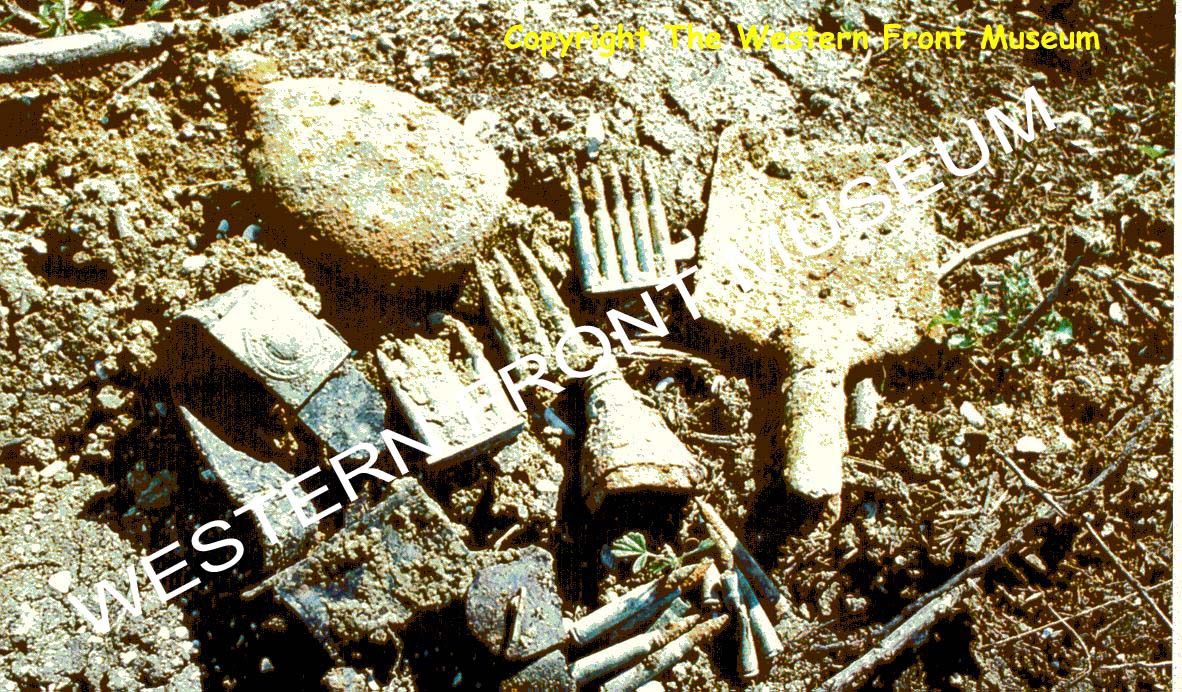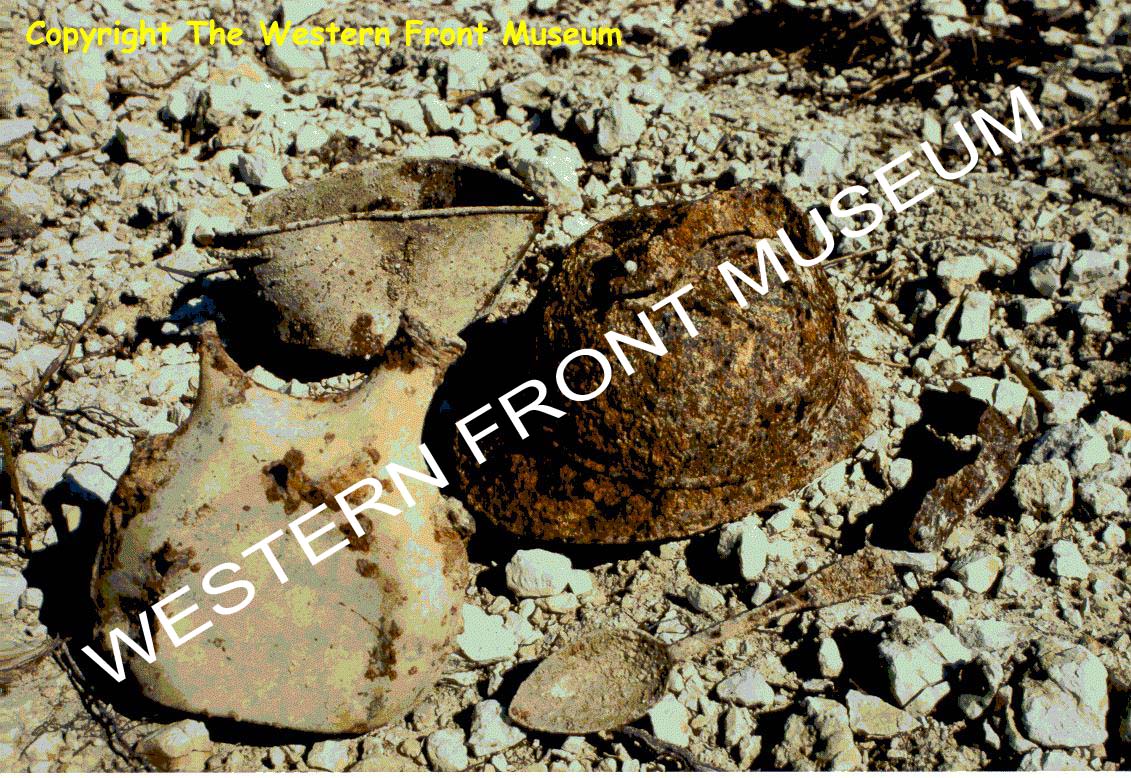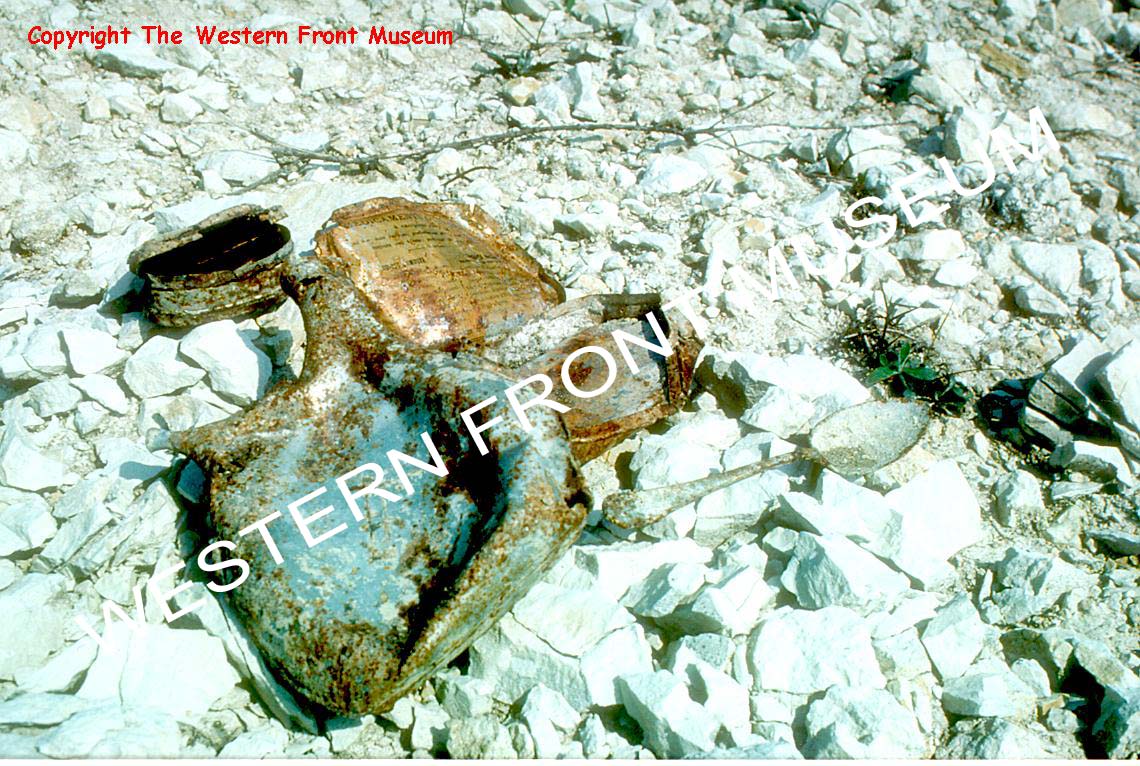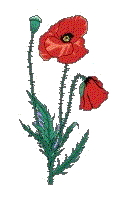
The
Western
Front
Museum
Created: 15/06/2000
Last updated:
Index
Part 1
Part 2
Part 3
Part 4
Part 5
Part 6
Part 7
Part 8
|
Debris of War - phototour
Part 1:
Because a picture says more than a
thousand words we will show you a small selection of some of the items we have found over
the years. None of items have been located by using a metal-detector. Keep in mind
that most of the First World War
battlefields are still littered with thousands of pounds of scrap-metal (and unexploded
shells in all types and shapes some of which could contain a deadly gas).
Great if you like digging all these trenches all over again, tired of living and are
willing to take the change of ending up in the statistics.
Simply a waste of time. Also beware that in Belgium and France the use of a metal-detector
will cost you a heavy fine and loss of your detector.
|
|  |
NOTE OF CAUTION:
DO NOT TOUCH OR HANDLE AMMUNITION UNLESS YOU HAVE A SPECIAL PERMIT TO DO SO!
DO NOT ENDANGER YOURSELF AND YOUR SURROUNDINGS. UNEXPLODED BOMBS SHOULD BE LEFT ALONE
AT ALL TIMES. LET THE EXPERTS DEAL WITH THEM = EXPLOSIVE ORDNANCE DISPOSAL.
|
 |
See if you manage to recognise some of the depicted artifacts.
Verdun - May 1981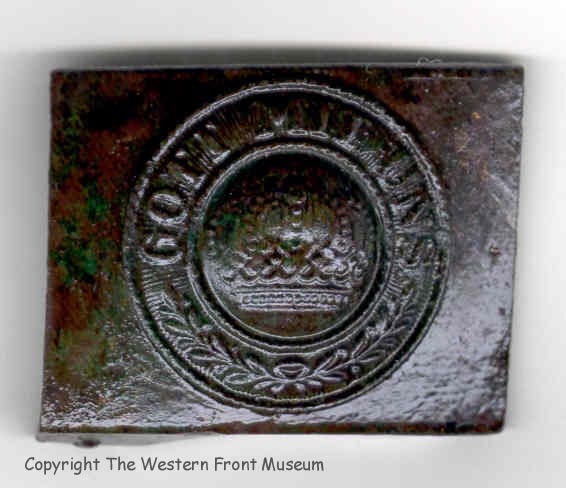
Double click for close-up of
the German belt-buckle. |
Picture was taken after finding
mostly German items on the bottom of a recent dug drainage-ditch right opposite (!) of the
Mémorial de Verdun.
Later on I was told that - while digging that particular stretch of ditch - workmen
discovered the remains of some five Germans!
Belt-buckle (Gott mit Uns) - part of leather belt still in place, German water bottle, several (brass) clips of 8x57
Mauser rifle-cartridges, a German spade and in the middle the top of a French 75mm
grenade - fuze Model 22/31. |
Verdun - May 1983 |
Again the Verdun area (near Mort Homme), this time only
French items. My first battlefield helmet - M1915 Adrian, French one-litre - 1887 pattern - water bottle,
mess tin and spoon. |
Verdun - May 1983
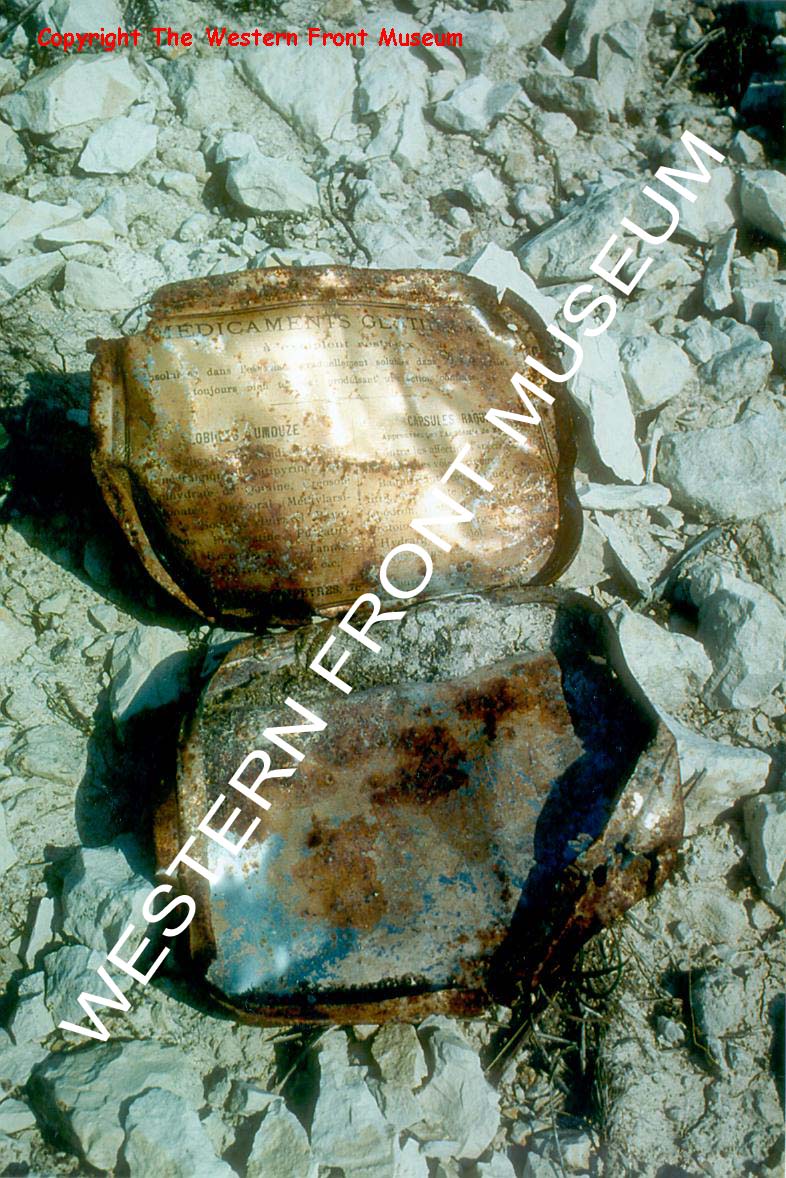
Close-up of
the French medicament tin. |
More French items found on what
use to be part of a French trench-system.
At first hedgerows were still in place on top of these trenches hiding them for many
years for the human eye. Once farmers started reclaiming these areas for the first time
since the war these old trenches revealed a lot of interesting and well-preserved items.
Another no longer mint conditions one-litre water-bottle, another spoon, a small two-sided
tin for grease and shoe polish. On one side the (brown) shoe polish was still present and
remarkable enough still creamy and useable! The other tin was used for medicaments, description inside
the tin partly visible. |
|




Member of the N.V.B.M.B.
(Dutch branch of the European Cartridge Research Association)
Copyright © The Western Front Museum Foundation
|



